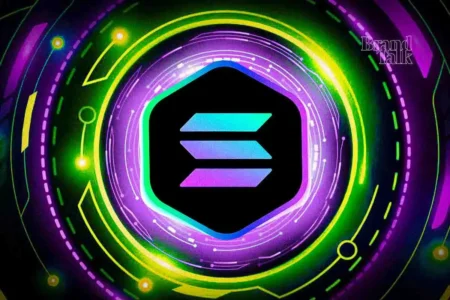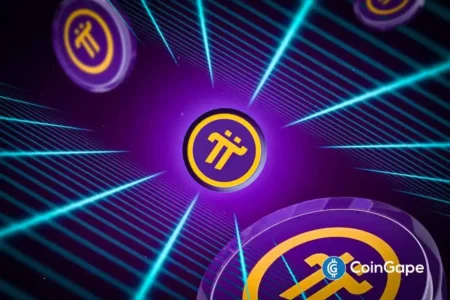The Collapse of the Arbitrum-Nvidia Partnership: A Setback for AI in Blockchain
Introduction
The anticipated partnership between Arbitrum, a leading Layer-2 network, and Nvidia has recently faltered, sending shockwaves through both the crypto and tech communities. The collaboration aimed to integrate Arbitrum into Nvidia’s Ignition AI Accelerator program, a significant opportunity for both parties to leverage their strengths. With its potential to propel decentralized infrastructure for AI projects, this partnership was poised to become a landmark development in the intersection of blockchain technology and artificial intelligence. However, the unraveling of this alliance has raised questions about the future of such collaborations and the larger implications for the Web3 ecosystem.
The Ignition AI Accelerator Program and Initial Expectations
Launched in May 2024, the Ignition AI Accelerator program was designed to offer comprehensive support and resources to high-potential AI startups. The vision was straightforward: Arbitrum would engage with these startups to help them develop decentralized solutions tailored for the AI landscape. Initially, this partnership was viewed as a pioneering attempt to merge blockchain scalability with AI innovation. The mutual benefits were clear: Nvidia could bolster its portfolio with blockchain capabilities, while Arbitrum aimed to secure its position as the go-to blockchain for AI projects. However, as recent developments have shown, this promising partnership has hit a roadblock.
Why the Nvidia-Arbitrum Partnership Failed
The collapse of the partnership stemmed from a critical misunderstanding. Contrary to popular belief, there was no formal partnership established between Nvidia and Arbitrum. The confusion arose as reports suggested that Arbitrum was withdrawing from the Ignition AI Accelerator program. According to an official statement released by Nvidia on April 25, the Arbitrum Foundation requested to exit the collaboration, providing a clear distinction that it was not Nvidia or its program that ended the partnership. The clarity of this situation indicates that despite the interest from both parties, compatibility issues ultimately derailed the collaboration.
Specifics of the Ignition AI Accelerator
The Ignition AI Accelerator program has stringent eligibility criteria for projects seeking to participate. To qualify, applicants must present an AI-focused product vision and innovative technology addressing real-world challenges. However, projects strictly based on cryptocurrency or blockchain technologies are explicitly excluded from applying. This policy may have been a significant factor in Arbitrum’s decision to withdraw; it seems their focus on blockchain solutions did not align with the program’s aims. Other types of excluded projects include consulting firms, cloud service providers, and publicly traded companies, suggesting a clear intention to maintain a specific focus on innovative, vertical-specific AI startups.
Market Reaction and Broader Implications
The announcement of the partnership’s failure had immediate effects on the market. Initially, Arbitrum’s token (ARB) experienced a 2.77% decline, trading at $0.3436, which likely reflected investor concerns. However, the market soon rebounded with ARB surging approximately 5% in the following 24 hours. This volatility indicates that while the news was unsettling, investors remained optimistic about Arbitrum’s resilience and potential for new partnerships. Meanwhile, Ethereum held steady around $1,810, although warnings were raised regarding a potential crash amid concerns from whale traders. Interestingly, smaller AI-focused crypto projects such as Fetch.ai and Ocean Protocol capitalized on the situation, witnessing modest price increases as investors looked to other Web3 options.
Do Web3 Firms Require Partnerships with Tech Giants?
The decision for Arbitrum to step away from the Nvidia collaboration brings to light the ongoing challenges Web3 companies face when dealing with established tech giants. This incident raises crucial questions about whether centralized partnerships are truly beneficial for decentralized projects. Many proponents of the crypto community argue that sustainable decentralized AI infrastructures should develop independently, relying on open-source communities rather than forming relationships with traditional corporations. This sentiment reflects a broader tension between the philosophies of decentralization and the practices of large tech firms, posing challenges for future collaborations.
Conclusion
The dissolution of the Arbitrum-Nvidia partnership serves as a cautionary tale for the emerging Web3 landscape. As the blockchain industry continues to evolve, it must navigate its unique challenges while exploring potential synergies with established technology players. The abrupt end of this collaboration not only highlights the complexities of integrating decentralized and centralized approaches but also sparks a larger discussion on how Web3 can thrive independently. The relationship between traditional corporations and decentralized projects remains fraught with challenges, raising essential questions about the future of innovation in the blockchain and AI realms. As the crypto landscape continues to shift, the focus may need to shift toward building resilient, stand-alone solutions that embrace the spirit of decentralization.
Disclaimer
The content presented above may include personal opinions of the author and is subject to market fluctuations. It is advisable to conduct thorough market research before making any investment decisions in cryptocurrencies. The author or the publication accepts no responsibility for any financial losses incurred.
















